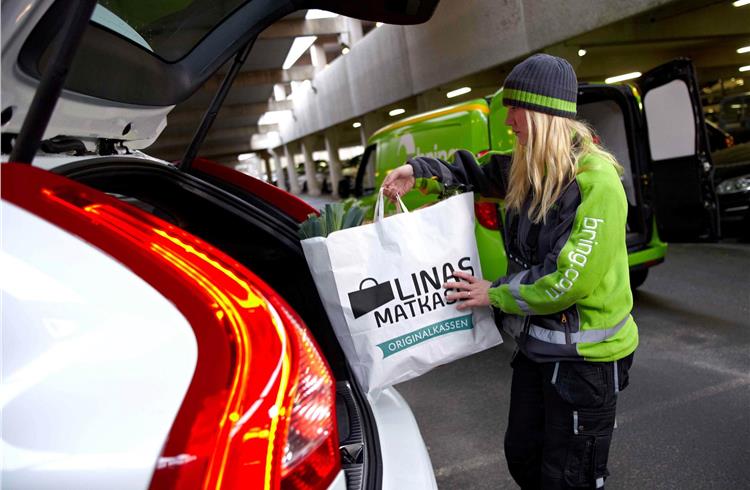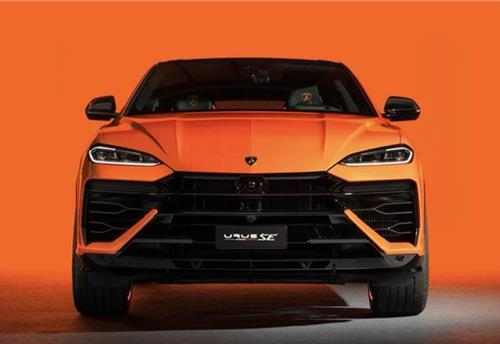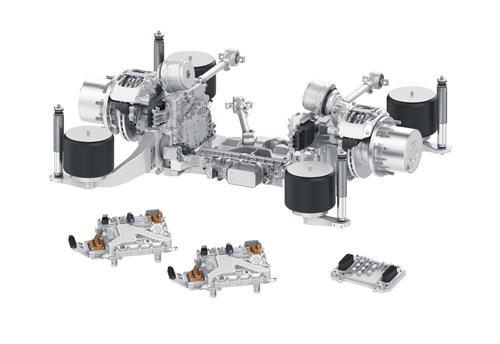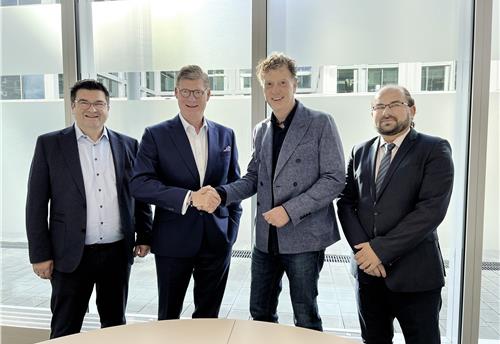Infosys wins app development services deal from Volvo Cars
Infosys, India’s second largest software services firm, has bagged a multi-year contract to provide application development services to Volvo Car Corporation.
Infosys, India’s second largest software services firm, has bagged a multi-year contract to provide application development services to Volvo Car Corporation.
In its filing to Bombay Stock Exchange (BSE) on March 17, Infosys said that Volvo Cars has selected Infosys as a strategic supplier to provide application development services for its global operations.
The software giant said the agreement builds on the long-standing relationship as Infosys has been supporting Volvo Cars since 2010 to rationalise and integrate its enterprise systems.
As part of the new agreement, Infosys will develop applications to support multi-domains including manufacturing, product development, marketing and sales, customer service and corporate functions. However the company has not disclosed any financial details involved in the deal.
The company also said that it will deploy best practices specifically related to business process harmonisation and delivery excellence, across transformation projects.
According to Nitesh Bansal, vice-president, manufacturing (Europe) at Infosys, “We will be a strategic supplier for Volvo Cars to deliver excellence and innovation to transform their IT landscape to a modern architecture. We have an industry heritage, deep automotive expertise, and established track record of delivering that leaves us well positioned to be a strategic supplier to Volvo Cars. This agreement also reflects our strategic focus on the Nordic market and strengthens our presence in Sweden.”
This is the second major automotive deal for the Bangalore-based software major after it won a contract from Toyota in October last year.
In October 2013, the company signed a four-year contract with Toyota Motor Europe (TME) to manage the automaker’s technology applications across Europe including its core automotive processes such as supply chain, manufacturing, sales and aftersales, and customer service.
Even prior to this deal, Infosys has been a key partner of TME for projects and transformation delivery services in various initiatives such as its pan-European IT landscape transformation and connected car.
Company sources said Infosys is working with automotive clients in three areas – business transformation, accelerating innovation, and efficient operations. The company engages with its clients with product development, from ideation to launch, product engineering (PE) an product lifecycle engineering services (PLES), and enterprise mobility, thereby helping the enterprise to speed up time-to-market.
Photograph: In a ground-breaking technology move for the automotive industry, Volvo Cars demonstrates the world’s first delivery of food to the car – a new form of ‘roam delivery’ services. The service will allow consumers to have their shopping delivered straight to their car, no matter where they are. Volvo’s new digital keys technology means that car owners will be able to choose their car as a delivery option when ordering goods online. Via a smartphone or a tablet, the owner will be informed when a delivery company wants to drop off or pick up something from the car.
RELATED ARTICLES
Lamborghini unveils Urus SE ahead of Auto China 2024
Electric-only range of 60km helps reduce emissions by 80%.
ZF to display next-gen e-axle for low-floor city buses at Busworld Turkiye 2024
The AxTrax 2 LF is available with a continuous output of up to 360 kW and a peak torque of up to 37,300 Nm.
Daimler Buses and BMZ Poland to develop next-gen NMC4 electric bus batteries
The new battery generation NMC4 – succeeding the current NMC3 technology – will combine high energy density, resulting i...





 18 Mar 2014
18 Mar 2014
 3103 Views
3103 Views





 Autocar Pro News Desk
Autocar Pro News Desk




